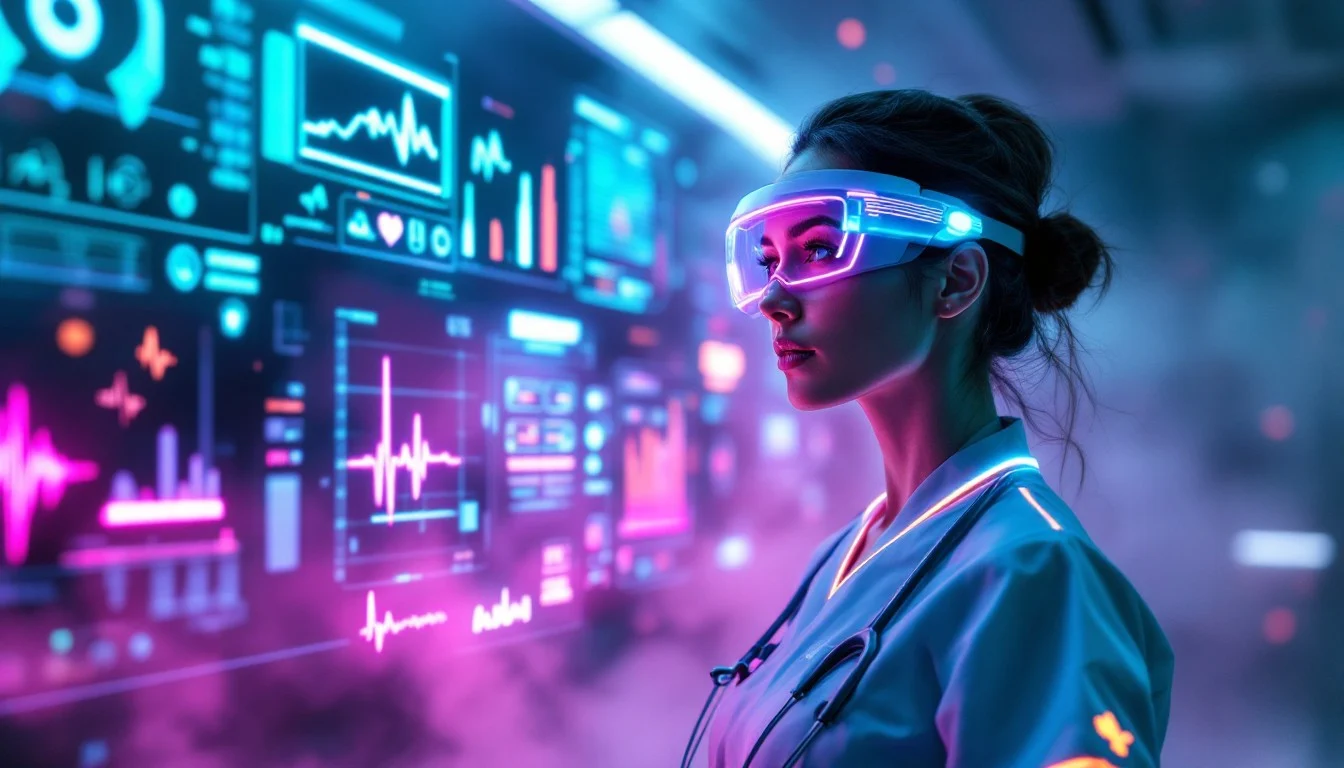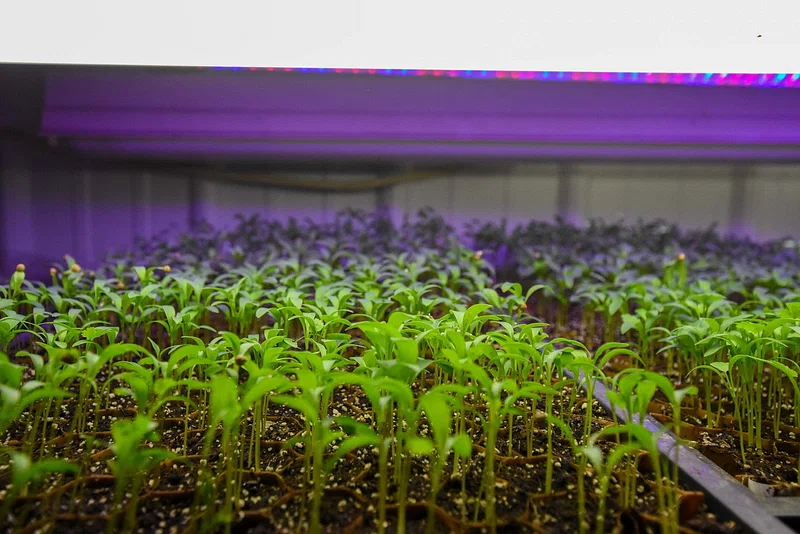Artificial intelligence is reshaping healthcare faster than anyone imagined. From hospital wards to home monitoring, AI is already making medicine smarter, safer, and more efficient. But 2025 is set to unlock a fresh wave of life-saving innovations. As the world adapts to smarter hospitals and virtual health, AI stands at the heart of cutting-edge care.
In this article, you’ll discover the top AI-powered healthcare trends—with real-world examples—set to transform patient care, diagnostics, treatment, and beyond in 2025.
Why Is AI in Healthcare Booming?
AI’s explosive growth in medicine isn’t just hype—it’s driven by a relentless demand for more accurate diagnoses, faster treatments, and greater healthcare access. With rising costs and global staff shortages, hospitals and clinics now see AI as a vital partner, not a mere tool.
Today’s AI can analyze medical images in a second, anticipate adverse drug reactions, and even predict patient admissions weeks in advance. These abilities make healthcare more proactive and personalized, allowing doctors and nurses to focus on what matters most: patients’ lives.
Top AI-Powered Healthcare Innovations in 2025
1. AI-Driven Medical Imaging and Diagnostics
Medical imaging is entering a new era thanks to advanced AI. In 2025, deep learning algorithms routinely interpret X-rays, CT scans, and MRIs to reveal early signs of disease—sometimes before symptoms appear.
- AI tools spot tumors, fractures, or infections with unmatched speed and accuracy.
- Hospitals report shorter waiting times for results, and patients face fewer diagnostic errors.
- Early cancer detection is now possible from subtle patterns invisible to the human eye.
These intelligent systems don’t replace radiologists. Instead, they empower physicians to make faster, smarter decisions with confidence.
2. Precision Medicine and Genomics
Personalized care is no longer a distant dream with AI’s help. By analyzing vast sets of genetic data alongside patient histories, AI can now recommend treatments tailored to each person’s unique biology.
- Genomic sequencing powered by AI detects genetic variations behind rare or complex conditions.
- Pharmacogenomics tools predict how different patients will react to specific medications, improving drug safety.
- New drugs are discovered faster as AI screens millions of potential compounds.
These breakthroughs are delivering therapies with better outcomes and fewer side effects, especially for cancer, heart disease, and inherited disorders.
3. Virtual Health Assistants and Chatbots
Virtual health assistants have moved beyond basic Q&A bots. In 2025, AI-powered assistants:
- Offer 24/7 support, answering medication queries and booking appointments.
- Send reminders for checkups, vaccines, or medication doses, reducing missed visits.
- Provide instant mental health guidance and emotional support to patients, helping fight stigma and loneliness.
Patients appreciate the convenience, while healthcare teams benefit from a lighter administrative workload. Expect to see these virtual assistants as first points of contact—especially in primary care and mental health services.
4. Predictive Analytics for Preventive Care
Proactive medicine is the new normal. AI systems quietly analyze trends in hospital admissions, wearable device data, and lab results to flag high-risk patients early.
- Chronic conditions like diabetes, heart failure, and asthma are managed better.
- Hospitals can identify likely admissions and intervene before emergencies arise.
- Personalized alerts help patients manage health at home, resulting in fewer crises.
By supporting early action, predictive analytics save both lives and healthcare costs.
5. Clinical Decision Support and EHR Management
Doctors face information overload, but AI-powered clinical decision support tools now serve as their digital co-pilots.
- AI reviews thousands of patient records, test results, and current guidelines instantly.
- Real-time suggestions help doctors choose the best intervention—reducing errors and improving outcomes.
- AI automates clinical documentation, freeing up precious time spent on paperwork.
This allows physicians to spend more time with patients, leading to higher satisfaction for both clinicians and those in their care.
6. Remote Patient Monitoring and IoMT
The Internet of Medical Things (IoMT) is revolutionizing care beyond the hospital walls. AI-integrated wearables and remote sensors:
- Track vital signs (heart rate, glucose, oxygen) and feed results to healthcare teams in real time.
- Alert staff when a patient’s condition changes, enabling rapid intervention.
- Collect long-term health data to tailor ongoing treatments, especially for seniors and those living with chronic illnesses.
These devices boost independence for elderly patients while keeping their doctors closely involved.
7. AI for Drug Discovery and Development
Drug development is expensive and slow, but machine learning has begun to accelerate breakthroughs:
- AI models help scientists design new molecules, predict side effects, and match ideal patients to clinical trials.
- During health crises like pandemics, AI shortens the time needed to identify effective treatments.
- Pharmaceutical companies see fewer failed trials, leading to safer, more targeted drugs on the market.
With AI handling mountains of data, researchers can focus on creative solutions and new treatment possibilities.
8. Administrative Efficiency and Workflow Automation
AI isn’t just for clinical care—it’s transforming the nuts and bolts of healthcare operations.
- Automated scheduling, billing, and resource allocation tools reduce hospital bottlenecks.
- AI-powered chatbots answer insurance questions and process claims faster.
- Hospitals and clinics run more smoothly, freeing staff to focus on direct care.
By streamlining administration, AI helps slash costs and improve service at every step.
9. Generative AI in Clinical Workflows
Generative AI (GenAI) is becoming indispensable for healthcare professionals:
- It automates routine written tasks like chart summaries, doctor’s notes, and patient instructions.
- GenAI-powered copilot tools provide real-time support during medical consultations, suggesting possible diagnoses or treatments based on updated research.
- Clinical burnout and staffing shortages are eased as GenAI handles repetitive work, allowing healthcare teams to practice at the top of their licenses.
GenAI is one of the most promising innovations to reduce fatigue and drive continuous learning within healthcare.
10. AI-Driven Mental Health Solutions
Mental health care is benefiting hugely from AI:
- AI chatbots offer round-the-clock counseling for stress, anxiety, or depression.
- Early-warning systems spot risk factors for suicide or crisis, facilitating timely intervention.
- Platforms analyze vast data to personalize therapy recommendations and provide ongoing support.
As mental health needs surge worldwide, AI-powered tools make support more accessible, affordable, and stigma-free.
11. Empowering Aging-in-Place
Older adults are increasingly able to live independently, thanks to AI companions such as ElliQ:
- These assistants check in on daily routines, remind users about medications, and encourage physical activity.
- AI adapts its communication style to engage seniors, reducing feelings of isolation and supporting healthy habits.
- Caregivers receive updates, making it easier to manage long-distance support.
With the global population aging, supporting independence while maintaining safety is a top priority.
The Future: Responsible AI for Equitable Care
Looking ahead, the challenge is not just adopting AI but ensuring its responsible and ethical use. Healthcare leaders are now prioritizing strategies that reduce bias, validate results, and protect patient privacy while widening access to essential care.
In 2025 and beyond, AI will continue to evolve. Innovations will become more scalable, affordable, and integrated across every healthcare setting—from remote clinics to top-tier research hospitals.
Conclusion: Embracing the AI Healthcare Revolution
AI-powered healthcare in 2025 offers more than just high-tech gadgets; it’s about a smarter, healthier world for everyone. From catching diseases early to personalizing treatment and giving patients more control, artificial intelligence is setting a new bar for quality, safety, and accessibility.
For hospitals and clinics in Tier-1 countries, the time to innovate is now. Stay ahead with AI—because the future of medicine is not just digital, it’s intelligent.
Ready to embrace the future of healthcare? Stay informed, invest in AI-powered solutions, and put patients first. The time to lead the healthcare revolution is today!






